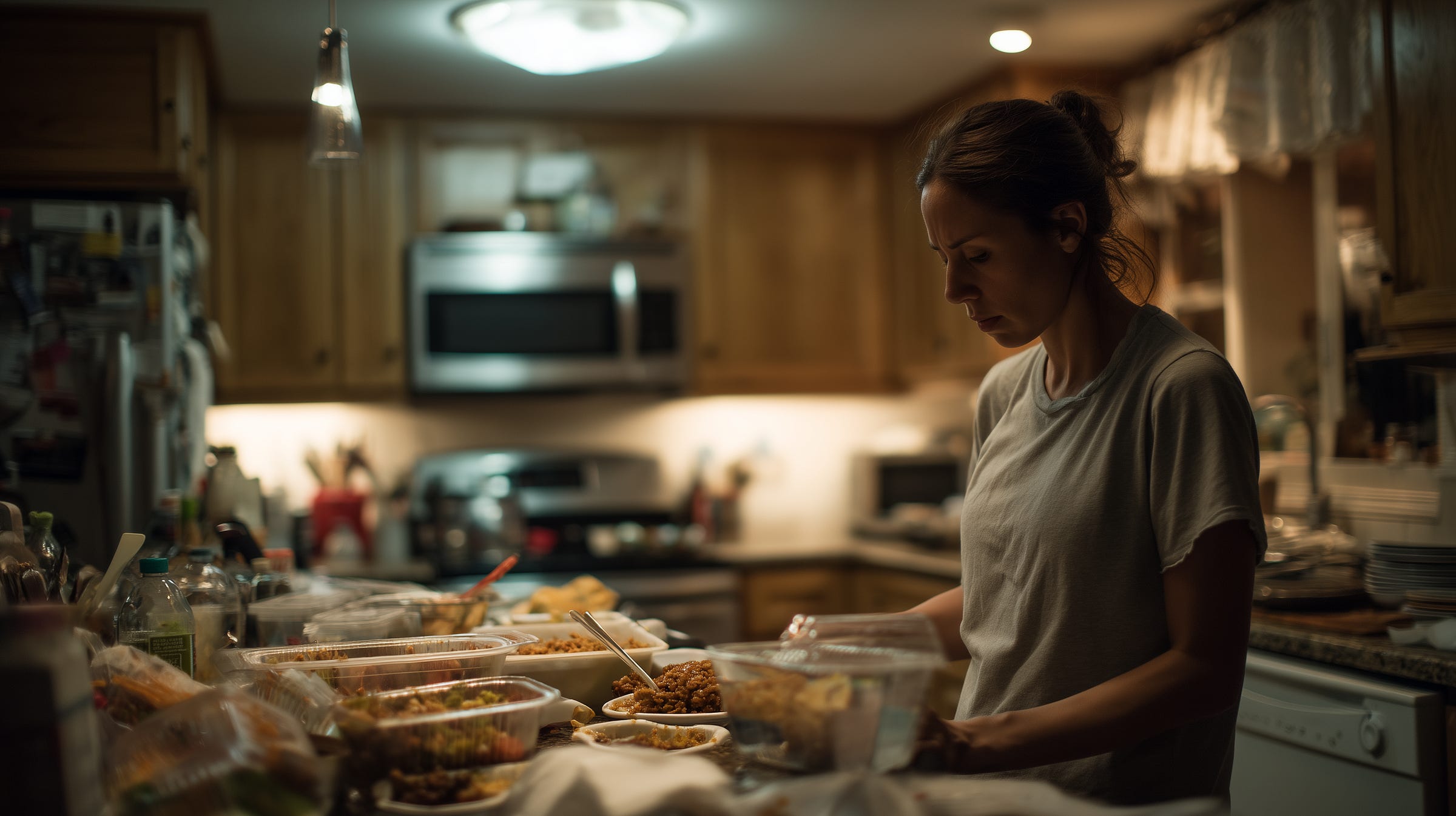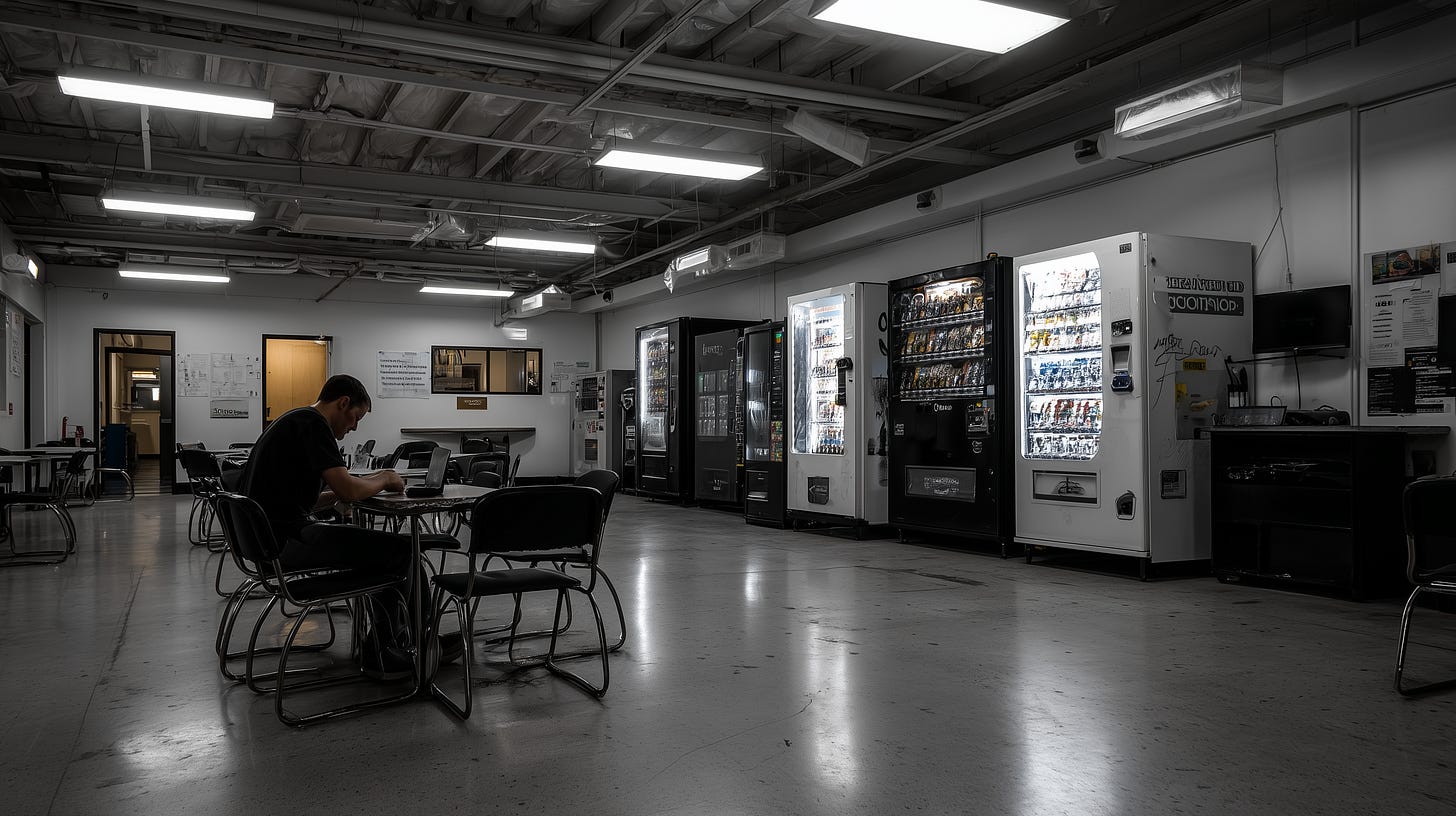We've never had more nutrition information at our fingertips—or more confusion about what to do with it. Between credentialed experts, wellness influencers, AI-generated content, and your cousin's miraculous Facebook diet, everyone's an expert and no one knows what to believe.
At one end of the spectrum, we have the quantifiers—people who reduce eating to spreadsheets, tracking every macro and micronutrient with forensic precision. At the other, intuitive eaters and ancestral diet devotees who swear by instinct or historical eating patterns. Most of us live in the messy middle, bouncing between data-driven optimization and guilt-driven restriction, between science and pseudoscience, between what we know and what we actually do.
The truth is, both extremes miss something essential. Nutritional science has given us invaluable insights into how food affects our bodies. Registered dietitians and researchers have developed evidence-based approaches that genuinely help people manage diabetes, heart disease, eating disorders, and countless other conditions. Their work has improved and saved lives. But we've also created a culture where anyone with a six-pack and a smartphone feels qualified to dispense medical advice. Correlation gets confused with causation. Complexity gets flattened by whatever's trending on TikTok.
When Everyone's an Expert, No One Is
Nutrition is uniquely vulnerable to misinformation because it feels personal. Everyone eats. Everyone has a body. So everyone feels entitled to extrapolate from their own experience. That's how a 22-year-old influencer with good lighting gets more traction than a registered dietitian with decades of clinical training. A tech executive who lost weight on keto becomes a wellness guru overnight. Celebrities launch supplement brands based on whatever reduced their bloating last month.
This isn't just frustrating—it's dangerous. When everyone claims to be an expert, actual expertise gets devalued. Real nutritional science, with its careful methodology and cautious conclusions, can't compete with the certainty of someone promising to "cleanse your liver in 10 days."
Credentialed professionals—dietitians, scientists, physicians—face a genuine communication challenge. Their messages often come with caveats: "It depends," "More research is needed," "Results may vary." These statements reflect the real complexity of nutrition and the integrity of evidence-based practice, but in a culture conditioned to crave black-and-white answers, they often fall flat.
Many professionals are adapting brilliantly. They're meeting people where they are, sharing evidence-based guidance through social media with more personality and narrative. They're collaborating with science-respecting influencers and telling stories that show what sustainable, expert-guided progress really looks like.
Most importantly, they're helping us understand the value of nuance. When a dietitian says "it depends," it's not indecision—it's an acknowledgment that your life, your body, and your context are unique. That's not ambiguity. It's accuracy.
When Precision Becomes a Problem
The challenge isn't that nutrition science is flawed—it's that applying clinical precision to everyday eating can sometimes miss the forest for the trees. The same tools that are critical for managing health conditions—carb counting for diabetes, protein timing for athletes—can become overwhelming when applied to every meal for every person. We've sometimes turned meals into math problems when what people need is sustainable, joyful eating that fits their real lives.
What both the extreme quantifiers and the wellness mystifiers miss is context. A kale salad isn't inherently good or bad. It depends on who's eating it, what else they're eating, whether it's accessible, whether it satisfies, whether it connects someone to their culture or alienates them from it. The best nutrition professionals understand this intuitively. They know that the "ideal" diet looks very different for a single mom working two jobs than it does for a retired executive with a personal chef. They respect that cultural food traditions carry wisdom you won't find in a nutrient database. They treat clients as full people, not just biomarker readings.
Unfortunately, nuanced nutrition advice doesn't go viral. It doesn't fit in catchy reels or sell cleanses. So it gets buried under simpler, louder messages.
This communication breakdown has real consequences. When people can't get clear, trustworthy guidance that fits their lives, they look elsewhere for solutions. And increasingly, "elsewhere" means the pharmacy.
Enter GLP-1s—undeniably effective drugs that help people eat less in a world designed to make us eat more. But their rise reveals something uncomfortable: we've built a food environment so out of sync with human biology that we need medication just to function in it. When hyper-processed food is everywhere and stress is high, it's no wonder people turn to pharmaceuticals. Cooking from scratch? That's a luxury. Making thoughtful choices? That assumes you have bandwidth.
The reality is that food choices don't happen in laboratories or ideal conditions. They happen in breakrooms, at the end of exhausting days, within budget constraints and time pressures. If we want people to eat better, we have to make it easier—not just offer better information. That means better food systems, policies, and support.
Cutting Through the Noise
So how do we cut through the noise? We start by putting real expertise back on the map—while also honoring lived experience and individual context. Formal training matters. Years of studying biochemistry, physiology, and clinical nutrition matter. Evidence-based research matters. But so do cultural wisdom, personal preferences, and the realities of people's daily lives.
Science and experience aren't opposites—they're partners. The mother who knows her child's eating patterns, the person who's learned what foods make them feel energized, the cultural knowledge passed down through generations—these insights matter and can inform how we apply scientific principles.
We need to appreciate numbers without treating them like the only thing that matters. Calories and macros are helpful tools, but they're not the full picture. You're not a spreadsheet. The point isn't to win at nutrition—it's to feel good and eat in a way that works for your real life, informed by both evidence and experience.
Before trusting nutrition advice, ask: Who's saying this? What's their background and training? Are they selling something? Do they offer nuance or just shout certainty? Do they speak to real lives or pretend everyone lives the same? Do they respect both scientific evidence and individual experience?
The future of nutrition isn't about picking sides between rigorous science and lived experience, or between counting every bite and trusting your gut completely. It's finding a path that honors evidence-based research while making space for joy, culture, and life's messiness. It means amplifying qualified professionals while also listening to the wisdom that comes from lived experience. It means remembering that health isn't just numbers, and understanding that food is identity, memory, and care.
Most of all, it means staying humble. The human body is complicated. Life is messy. Food is never just food. Both science and experience have taught us that simple answers to complex questions should make us skeptical.
The real truth about nutrition probably won't come with viral fame or guarantee overnight transformation. It might just say: it depends. And that's both honest and helpful. The goal isn't perfection—it's progress, supporting people rather than judging them, and helping each other eat well in a world that doesn't always make that easy.
–
This post was inspired by my latest episode of The Tomorrow Today Show: "The Future of Nutrition," with guests Katie Stebbins from the Food & Nutrition Innovation Institute at Tufts University and Carolyn O'Neil, registered dietitian and host of "Watch What You Eat with Carolyn O'Neil."
Our conversation explored the tension between quantification and intuition in nutrition, the challenges of making healthy eating accessible, and the importance of bringing both credibility and joy back to our relationship with food. Listen wherever you get your podcasts.










I appreciated this post but would say that the default for people isn't the pharmacy or GLP-1's due to the expense and side effects...I'd say that supplements are the first place people go as they are seen as more "natural", more accessible/fewer barriers like a doctor's visit or insurance, and often more advised/encouraged by non-credentialed/licensed voices on social media ...the supplement industry is incredibly lucrative and underrecognized for their lobbying influence. 53.58B (2023) in the U.S.